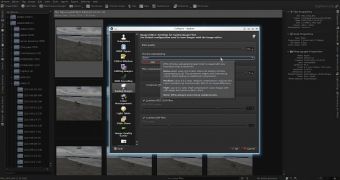Famous digital photo management application for KDE and Linux digiKam 4.0.0, which includes an image editor for photo corrections and manipulation, has been officially released and comes with a large number of changes and improvements.
The digiKam collection of tools has received a new major upgrade, and the stable 4.0.0 was made available only after a couple of development releases. Numerous problems were solved in the RCs, which leaves fewer issues to be covered in the final changelog.
Besides the huge number of smaller fixes and other changes that have been promoted with the new version, a few tools have also been implemented, making digiKam one of the most powerful applications of its kind.
“A new tool dedicated to organize whole tag hierarchies. This new feature is relevant of GoSC-2013 project from Veaceslav Munteanu. Veaceslav has also implemented multiple selection and multiple drag-n-drop capabilities on Tags Manager and Tags View from sidebars, and the support for writing face rectangles metadata in Windows Live Photo format,” reads the official announcement.
According to the changelog, a new maintenance tool dedicated to parse image quality and auto-tags items automatically using Pick Labels has been added, the Showfoto thumbbar has been ported to the Qt model/view in order to switch later the full digiKam code to Qt5, the release is now fully ported to Qt4 model-view and has dropped the last Q3-Support classes, and the multi-core CPU support has been added for several tools that require a lot of computing, such as Sharpen, LocalContrast, Noise Reduction, and all visual effects tools.
Also, the developers have noted that “lots of work has been done into Import tool to fix several dysfunctions reported since a very long time. For example, the status to indicate which item have been already downloaded from the device is back.”
As usual, the applications can be downloaded for all available platforms, namely Linux, Windows, and Mac OS X. The project is still highly dependent on KDE, but it can work independently of it, if the user chooses so.
It's advisable that you wait for your distribution to adopt the software into the official repositories, which might take a while. If you really must have it, you can always take the source code and compile it yourself. Be warned, this is a large application and comes with many dependencies.
The complete changelog for digiKam can be found on the official website. You can download digiKam 4.0.0 right now from Softpedia.

 14 DAY TRIAL //
14 DAY TRIAL //